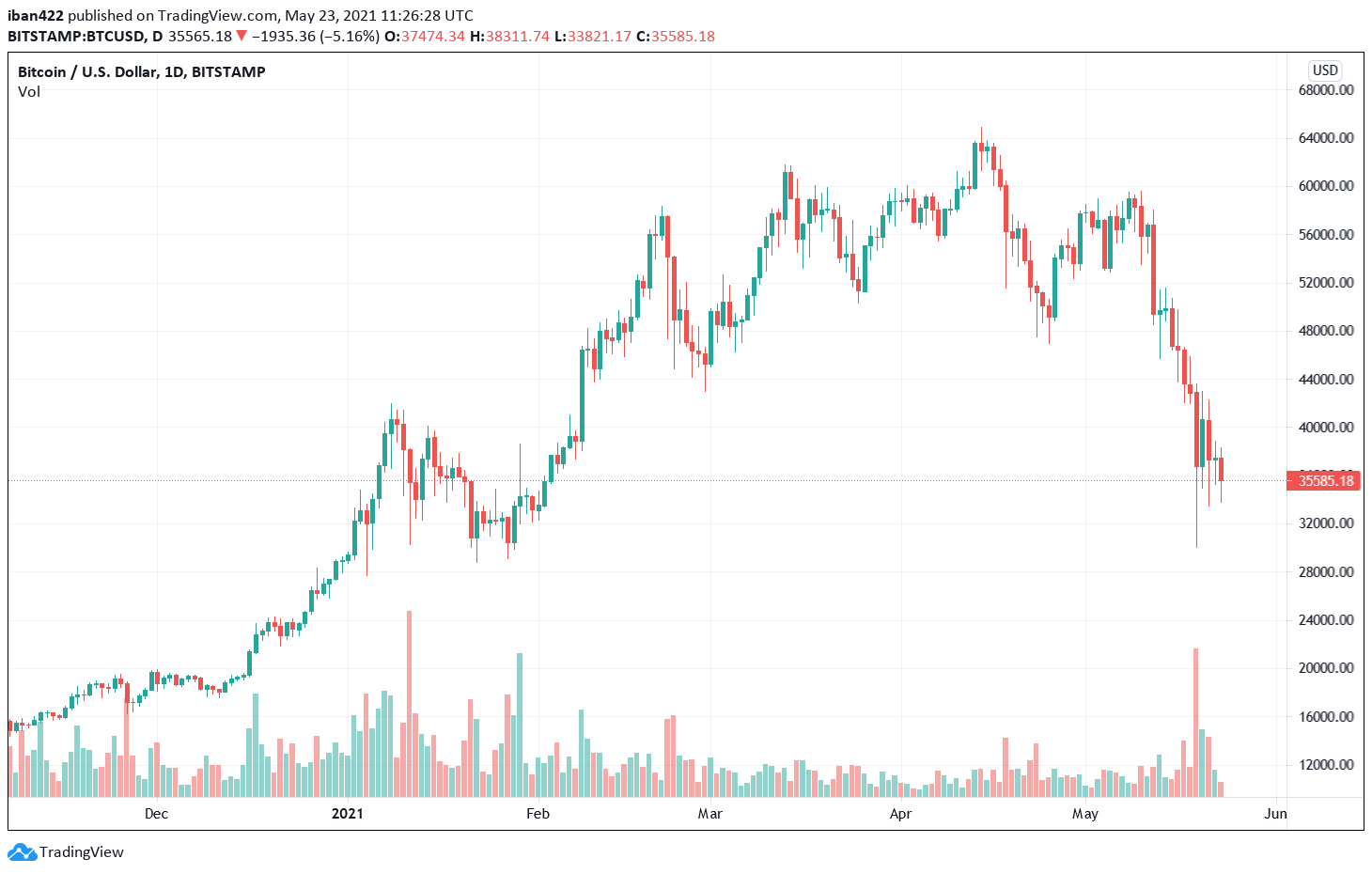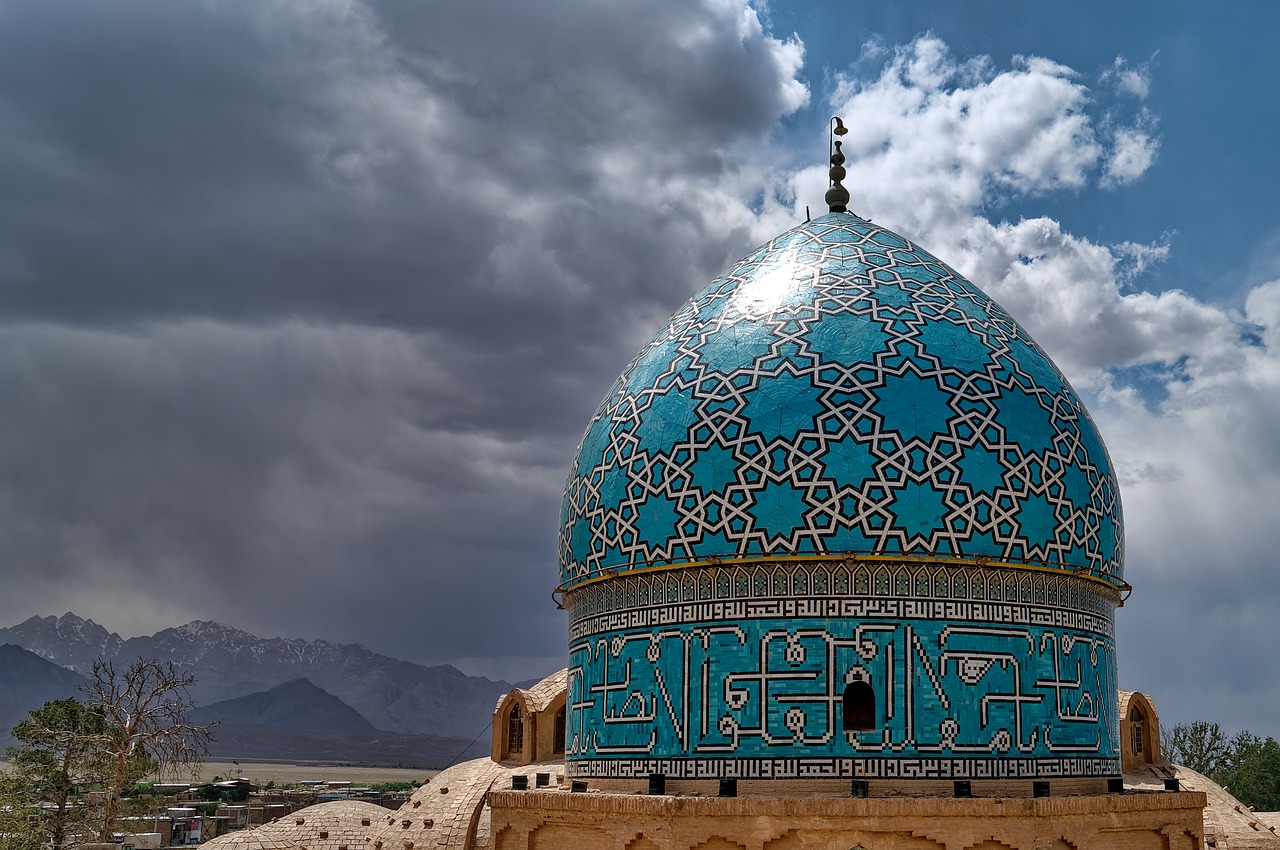
Iran is using Bitcoin mining to circumvent and lessen the effect of the economic sanctions that the U.S. and other countries have applied to the country since 2006, according to a new study by Elliptic, a blockchain analytics and financial crime compliance firm.
4.5% Of Bitcoin Mining Happen In Iran
According to a new report from Elliptic, a blockchain research company, Iran is using bitcoin as a method to bypass and mitigate the effects of the country’s harsh sanctions. According to the study, Iran has 4.5% of the world’s bitcoin hashrate and is using bitcoin to export its energy reserves in an indirect manner.
The United States imposes an almost total economic embargo on Iran, including a ban on all imports including those from the country’s oil, banking and shipping sectors.
As a result, the government has turned to bitcoin mining as a possible method for converting its energy potential into a commodity from which the country can benefit.
It seems to have succeeded. Iran’s ageing electric infrastructure has struggled to cope with the increased load imposed by mining. Electricity is relatively inexpensive, which has fueled the cryptocurrency mining craze. According to Elliptic, Chinese mining companies have been attracted by this fact, and have even partnered with the military to safely transport their facilities into the country.
Though exact figures are “very difficult to ascertain,” Elliptic’s estimates are based on data obtained from bitcoin miners by the Cambridge Center for Alternative Finance up until April 2020, as well as claims from Iran’s state-controlled power generation company in January that miners consumed up to 600 MW of electricity.
Related article | Iran Bans Trading Of Foreign-Mined Cryptocurrencies
How Is Iran Doing It?
As a result, the Iranian government is essentially selling its energy assets on global markets, bypassing trade embargoes through the Bitcoin mining process. Miners in Iran are paid in Bitcoin, which can then be used to pay for imports, circumventing restrictions on payments by Iranian financial institutions.
With a study recently published by a think tank affiliated with the Iranian president’s office outlining the use of cryptoassets to circumvent sanctions, this has almost become official policy.
In the meantime, financial institutions, especially those that are just starting to provide cryptoasset services, should think about the sanctions risk they face as a result of Iranian Bitcoin mining. If Iran accounts for 4.5 percent of Bitcoin mining, any Bitcoin transaction involving the sender paying a transaction fee to an Iranian Bitcoin miner has a 4.5 percent chance of involving the sender paying a transaction fee to an Iranian Bitcoin miner. Financial institutions should be on the lookout for cryptocurrency deposits made by Iranian miners looking to cash out their profits.
A variety of campaigns are being launched to thwart this potential criminal activity. Marathon, a North American bitcoin mining firm, recently opened the first OFAC-compliant bitcoin mining pool, which is now mining only compliant transactions.

Related article | 4 In 10 People Want To Use Crypto Payments Next Year, Mastercard Survey Finds
Featured image from Pixabay, Charts from TradingView.com


















